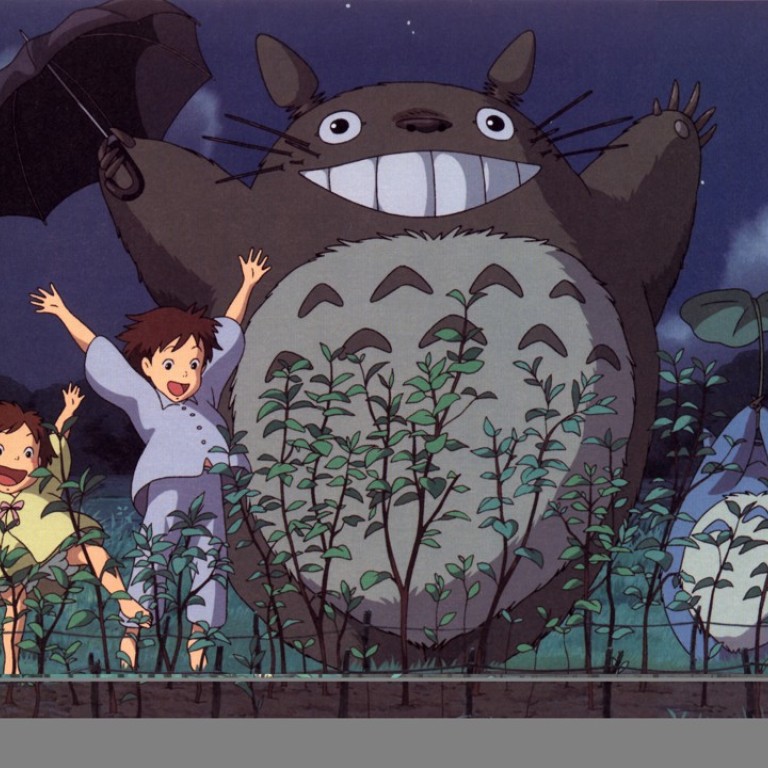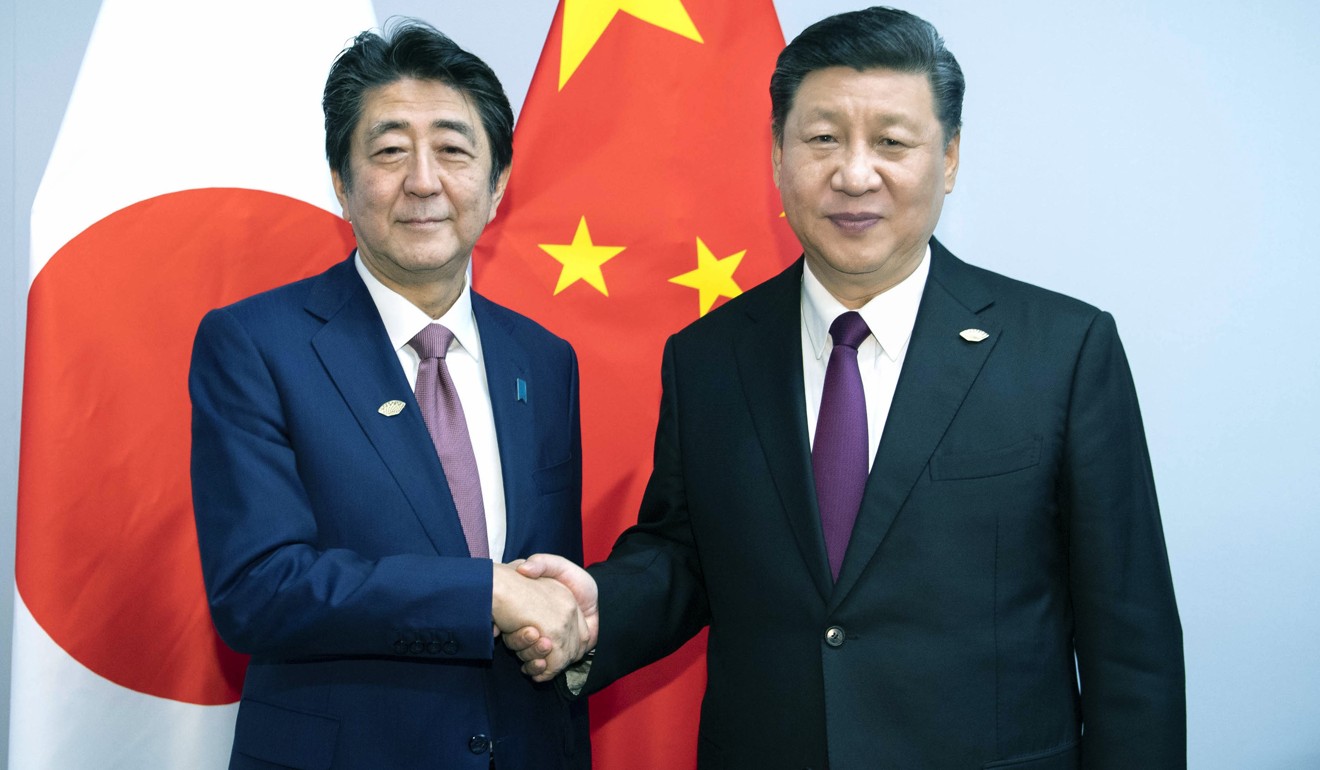
Chinese release of Japanese anime film classic delights fans – even though it took 30 years
- Screening of My Neighbour Totoro, three decades after its initial worldwide release, may be a sign of warming Sino-Japan ties
- The animated fantasy film is one of Japan’s most recognisable cultural exports
Chinese fans of the classic Japanese anime film My Neighbour Totoro are rejoicing at news that the heart-warming masterpiece is finally having an official screening in mainland cinemas, three decades after it was released worldwide.
The acclaimed 1988 animated film about a giant furry woodland creature is one of Japan’s most recognisable cultural exports. Its mainland China release on its 30th anniversary may be a sign of warming Sino-Japanese ties, analysts say.
“The theatre screening marks a good signal for the Sino-Japanese relationship through [introducing] a non-political children’s animation,” said Sobel Chan, a Baptist University professor of film studies.
China allows just 34 foreign films to be distributed in the country per year under a quota system. But this figure could rise in the next few years as more foreign productions scramble to access the world’s biggest film market.
Anime – a word based on the Japanese pronunciation of “animation” – combines hand-drawing and computer technology.
Although it originated in Japan, it has a huge Chinese fan base.
Asian film specialist Kevin Ma said the release of My Neighbour Totoro was unsurprising, given the success of other Japanese anime releases in China in recent years, such as Your Name and Doraemon the Movie.
Chinese tech giants in cartoon arms race to dominate anime market
“Studio Ghibli films have been very popular in China even though they never got a proper theatrical release,” Ma said, referring to the acclaimed Japanese production company. “Totoro is probably one of the most beloved Studio Ghibli films around.”
The film is about two sisters in rural Japan who discover a mythical woodland creature that gives them comfort while their mother is in hospital battling a serious illness. Widely praised for capturing the innocence and delight of childhood, Totoro was ranked 41st on Empire magazine’s list of “The 100 Best Films Of World Cinema” in 2010. The editors of Time Out had it in third place on a list of all-time greatest animated films.
Ma said many film releases could be controlled by political relations.
He said that when Beijing was at odds with Seoul over the US’ deployment in South Korea of the Terminal High Altitude Area Defence system “they stopped showing Korean films altogether”.
China said the sophisticated radar technology could be used to track Chinese missiles, threatening its national security.
Anime boosts China's embattled mobile gaming industry
The prolonged tariff war between Washington and Beijing is now affecting film releases in China.
“Right now, with China and America in a trade war, China is looking for Japan to be a closer diplomatic partner so it makes sense that relations are warming,” Ma said. “The result of that is probably more Japanese films getting released.”
Japanese Prime Minister Shinzo Abe met Chinese President Xi Jinping in October in a landmark summit that rebuilt ties between the two Asian giants after years of strained relations. Abe called it a “historic turning point” in Sino-Japanese ties.

Japan and China have had a difficult relationship in the wake of Japan’s wartime occupation of China. The killing of millions of Chinese by Japanese troops between 1931 and 1945 has fuelled animosity towards Japan in China.
Japanese pop culture and anime-style films, however, have been universally welcomed by Chinese millennials.
Ma said that as of Thursday, Totoro had already climbed from eighth place in Chinese box office business to the second spot, a sign of its success during what traditionally is a “dry period” for film releases – before the launch of the big end-of-year blockbusters.
Why do Hongkongers watch so much hentai, Japanese anime porn?
Many Chinese have already watched the film on DVD or pirated copies, and fans of the film have taken to social media to share their responses to the film’s Chinese release and to reminisce.
“For me, My Neighbour Totoro is my heart’s purest memory,” wrote a Weibo user named Zhufuzhenxi on China’s Twitter-like microblogging site.
“I used to watch it over and over on my old DVD player. Now I really miss how I felt watching it at the time. Although the movie only has a very warm, naive story, it really made me feel that it was a proper fairy tale,” Zhufuzhenxi wrote.
Ah Zhen, an 18-year-old student from Jiujiang in Jiangxi province, first watched the film in middle school before discovering the rest of the Studio Ghibli animated films.
“It’s a very relaxing film, and following the action of the story makes me particularly happy,” said Ah Zhen. “I think most of the people watching it this time will have seen it before. They probably want to watch it out of nostalgia.”
Gulu, a 20-year-old student from Shijiazhuang in Hebei province, said: “A few months ago I happened to see online that My Neighbour Totoro was going to be released on the mainland and I was so excited.
“I’ve always loved all of the Studio Ghibli films, so have been waiting eagerly until this day.”

